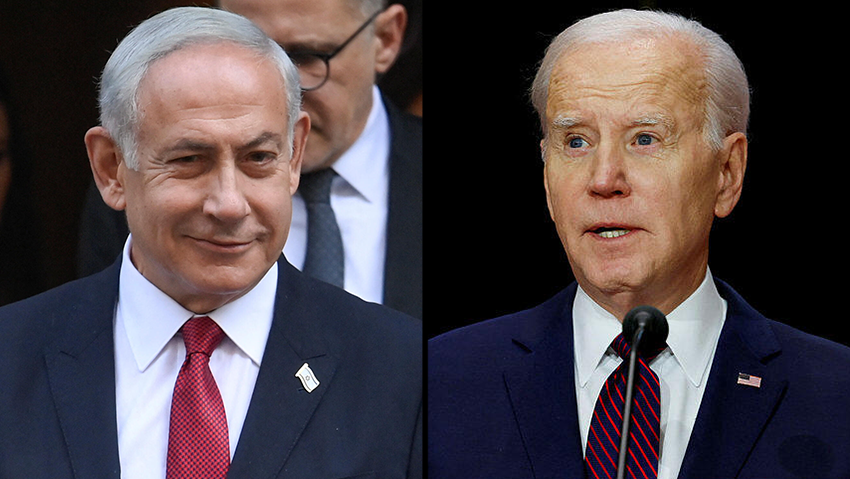Prime Minister Benjamin Netanyahu refused to say he’ll obey the Supreme Court's ruling if it overturns the government’s legislation to cancel the reasonableness standard. "It's a kind of spiral. I hope we won't get to that," Netanyahu said in an interview with CNN Thursday. He also warned against Israel going into “uncharted territory,” should the move take place.
More stories:
Several appeals were filed against the reasonableness clause, and the court decided Thursday that the bill will be put into effect immediately, with the appeals against it planned to take place in September.
Netanyahu, who continues giving interviews to international outlets while avoiding doing so with Israeli media, also spoke with the American NPR network and said he does not plan to dismiss Israel’s Attorney General, Gali Baharav-Miara, but will reappoint Shas party head Aryeh Deri’s ministerial positions following the reasonableness clause’s approval.
"It's not even on the table, and it won't happen," Netanyahu said when asked about the possibility of dismissing the Attorney General. Regarding the possibility of reappointing Deri as a minister after the Supreme Court rejected him, Netanyahu said, “It depends what happens, of course, with the legislation, we have to see. But if it stands, I expect it to happen.”
Regarding the legislation's impact on Israel's security, Netanyahu said, "I don't think it's affecting our national defense, Israel is very strong. There's no real, I would say, detraction or reduction in our ability to meet our security challenges."
In an interview with CNN, Netanyahu was asked if he foresees repercussions from the U.S. for approving the law, to which he said that the relationship between Israel and the U.S. is still strong.
“We’re both interested in blocking Iran. We’re both interested in advancing peace. This is the reason I came back to serving for the sixth time as Israel’s Prime Minister. I think those goals are achievable, and they’re going to be achieved together between Israel and the United States. I think that will strengthen our alliances. not weaken,” he said.
Netanyahu addressed the cancellation of the reasonableness standard and its significance, saying, “We don’t want a subservient court. We want an independent court, not an all powerful court and that’s the correction that we’re doing.”
Netanyahu admitted that the bill sparked a “big debate” in Israeli society. “I don’t want to minimize it. I also don’t want to minimize the concerns that people have, because many of them have been caught in this spiral of fear,” he said, adding “Israel is going to remain a democracy.”
In an interview with the American network ABC on Thursday, Netanyahu said he listened to the advice of U.S. President Joe Biden on achieving a wide consensus on the judicial overhaul, and described the reasonableness clause as a "minor correction."
He was also asked about moves aimed at reaching a compromise, saying "I'm actually more optimistic now than I was before. I hope the opposition leaders show responsibility and come to the middle. There is a middle out there."
Netanyahu added that agreements can be found with those opposing judicial overhaul, and added he hopes the government will be able to reach them with as wide a consensus as possible.




